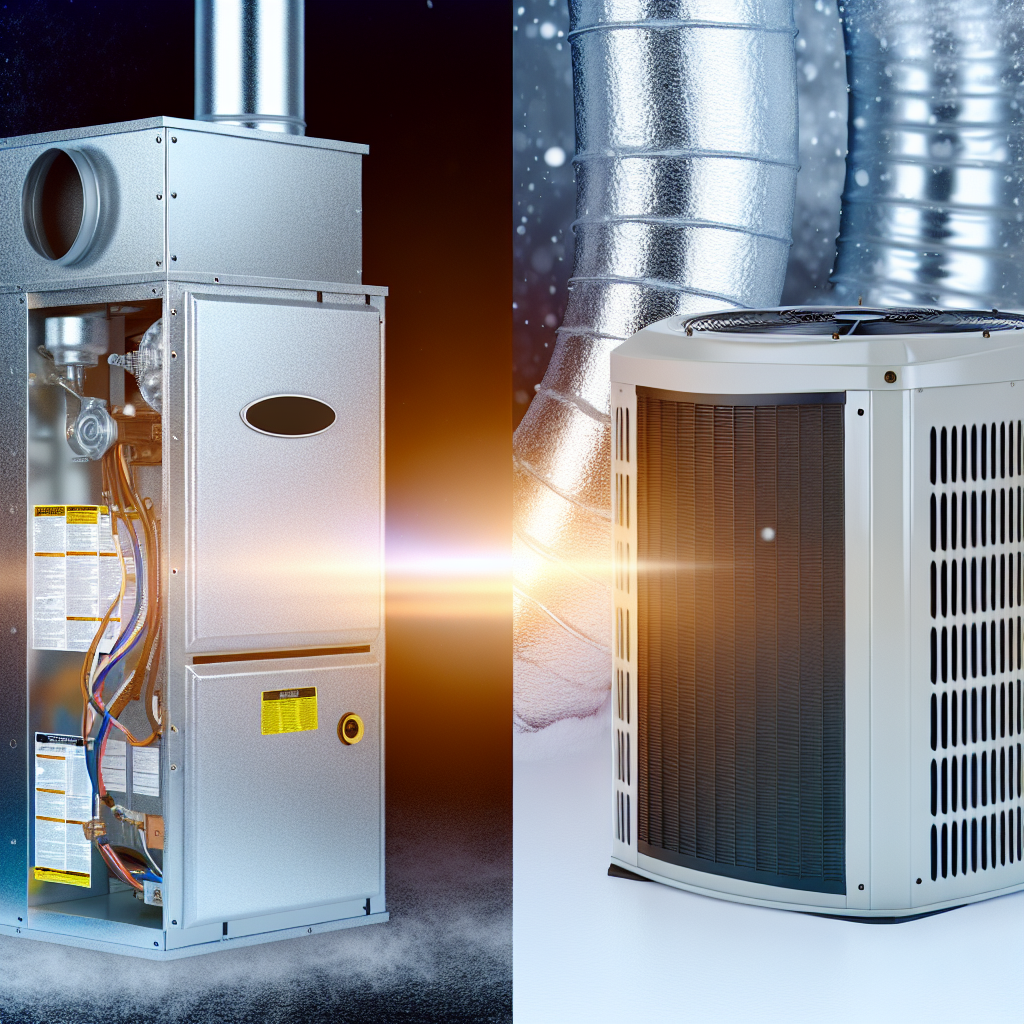Published: Aug 03, 2025

When it comes to keeping your home warm and comfortable during the winter months, choosing the right heating system is crucial. Two popular options that homeowners often consider are furnaces and heat pumps. In this blog post, we will compare these two heating systems to help you understand the differences between them and decide which one might be the best choice for your home.
Furnaces are one of the most common heating systems found in homes across the country. They work by burning fuel, such as natural gas or propane, to generate heat. This heat is then distributed throughout the home via ductwork and vents. Furnaces are known for their ability to quickly and efficiently heat a home, making them a popular choice for homeowners looking for reliable warmth during the cold winter months.
There are two main types of furnaces: gas furnaces and electric furnaces. Gas furnaces tend to be more energy-efficient and cost-effective to operate, especially in regions where natural gas is readily available. On the other hand, electric furnaces are known for their lower upfront costs and ease of installation, making them a good option for homeowners looking for a simpler heating solution.
One of the key advantages of furnaces is their ability to provide consistent and reliable heat, regardless of the outdoor temperature. This makes them an ideal choice for homes located in colder climates where temperatures can drop significantly during the winter months. Additionally, furnaces are known for their long lifespan, with proper maintenance and care, a furnace can last for many years, providing reliable heat for your home.
Heat pumps are another popular heating option that many homeowners consider. Unlike furnaces, which generate heat, heat pumps work by transferring heat from one place to another. In the winter, heat pumps extract heat from the outside air and transfer it into your home to provide warmth. During the summer months, heat pumps can also reverse the process to cool your home by removing heat from the indoor air and transferring it outside.
There are two main types of heat pumps: air-source heat pumps and geothermal heat pumps. Air-source heat pumps are the most common type and are typically more cost-effective to install. They work well in moderate climates but may struggle to provide sufficient heat in extremely cold temperatures. Geothermal heat pumps, on the other hand, are more expensive to install but can be more efficient, especially in areas with a consistent underground temperature.
One of the key advantages of heat pumps is their energy efficiency. Because heat pumps do not burn fuel to generate heat, they can be a more environmentally friendly heating option compared to furnaces. Additionally, heat pumps can provide both heating and cooling, making them a versatile year-round solution for your home's indoor comfort.
When deciding between a furnace and a heat pump for your home, there are several factors to consider. Your location, climate, energy costs, and budget all play a role in determining which heating system is the best fit for your needs. If you live in a region with mild winters, a heat pump may be a more cost-effective and energy-efficient choice. However, if you experience colder temperatures during the winter months, a furnace may be a more reliable option for keeping your home warm and comfortable.
Regardless of which heating option you choose, it's essential to have your system professionally installed and maintained to ensure optimal performance and efficiency. Regular maintenance can help extend the lifespan of your heating system and prevent costly repairs down the line. By weighing the pros and cons of furnaces and heat pumps and considering your specific heating needs, you can make an informed decision that will keep your home cozy and comfortable all year round.
**

Our expert technicians are ready to assist you 24/7!
Contact Us Today!Read our latest articles for helpful information about heating, cooling, and air quality.
Investing in energy-efficient HVAC systems like variable-speed air conditioners, heat pumps, and smart thermostats can...
Read MoreRegular HVAC maintenance is essential for improving energy efficiency, extending the lifespan of your system, enhancing...
Read MoreImplement these 10 tips to enhance the air quality in your home, promoting a healthier living environment for you and y...
Read MoreRegular seasonal HVAC maintenance is essential for maximizing system efficiency, ensuring indoor air quality, preventing...
Read More